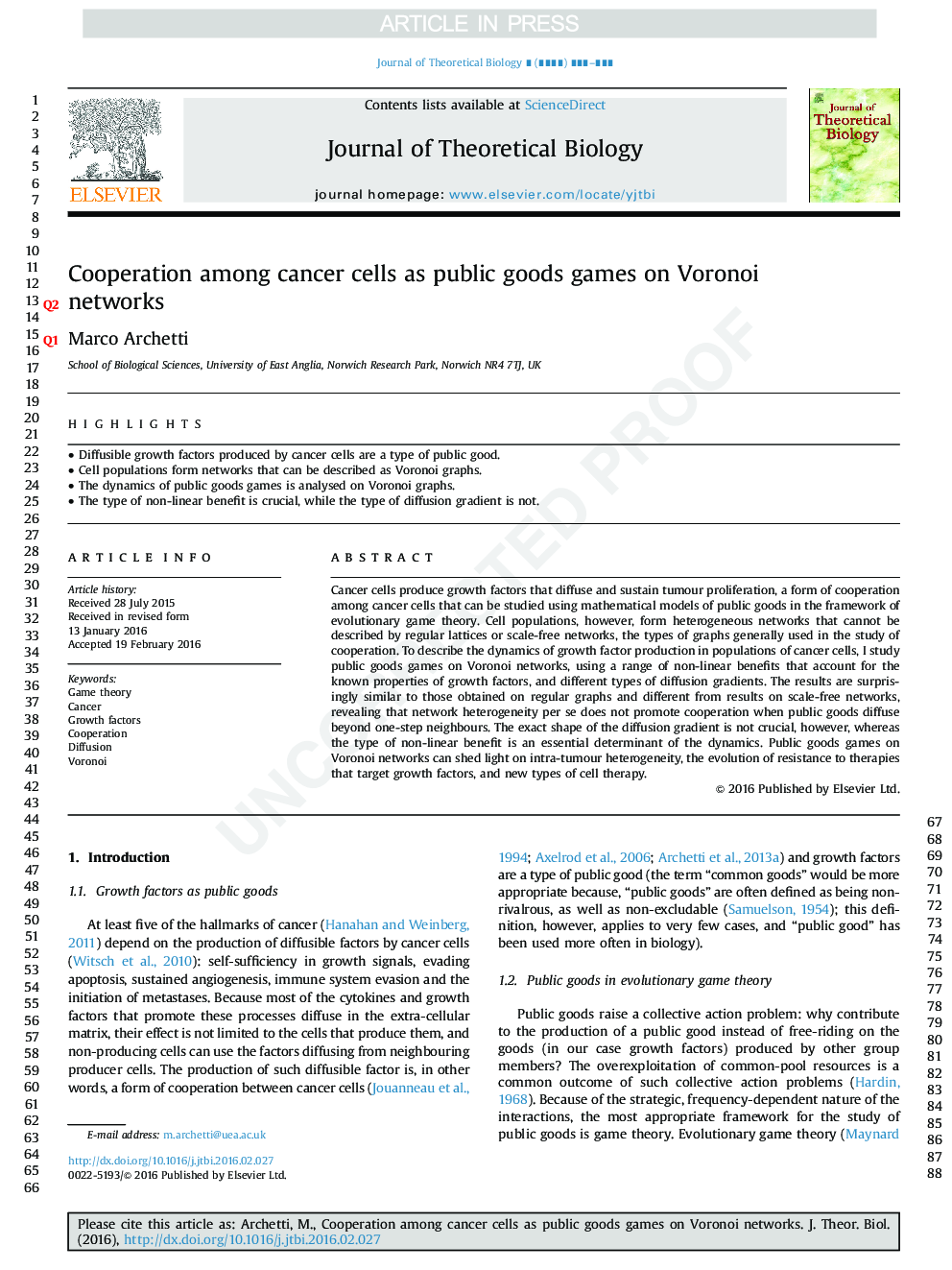| Article ID | Journal | Published Year | Pages | File Type |
|---|---|---|---|---|
| 6369309 | Journal of Theoretical Biology | 2016 | 13 Pages |
Abstract
Cancer cells produce growth factors that diffuse and sustain tumour proliferation, a form of cooperation that can be studied using mathematical models of public goods in the framework of evolutionary game theory. Cell populations, however, form heterogeneous networks that cannot be described by regular lattices or scale-free networks, the types of graphs generally used in the study of cooperation. To describe the dynamics of growth factor production in populations of cancer cells, I study public goods games on Voronoi networks, using a range of non-linear benefits that account for the known properties of growth factors, and different types of diffusion gradients. The results are surprisingly similar to those obtained on regular graphs and different from results on scale-free networks, revealing that network heterogeneity per se does not promote cooperation when public goods diffuse beyond one-step neighbours. The exact shape of the diffusion gradient is not crucial, however, whereas the type of non-linear benefit is an essential determinant of the dynamics. Public goods games on Voronoi networks can shed light on intra-tumour heterogeneity, the evolution of resistance to therapies that target growth factors, and new types of cell therapy.
Related Topics
Life Sciences
Agricultural and Biological Sciences
Agricultural and Biological Sciences (General)
Authors
Marco Archetti,
